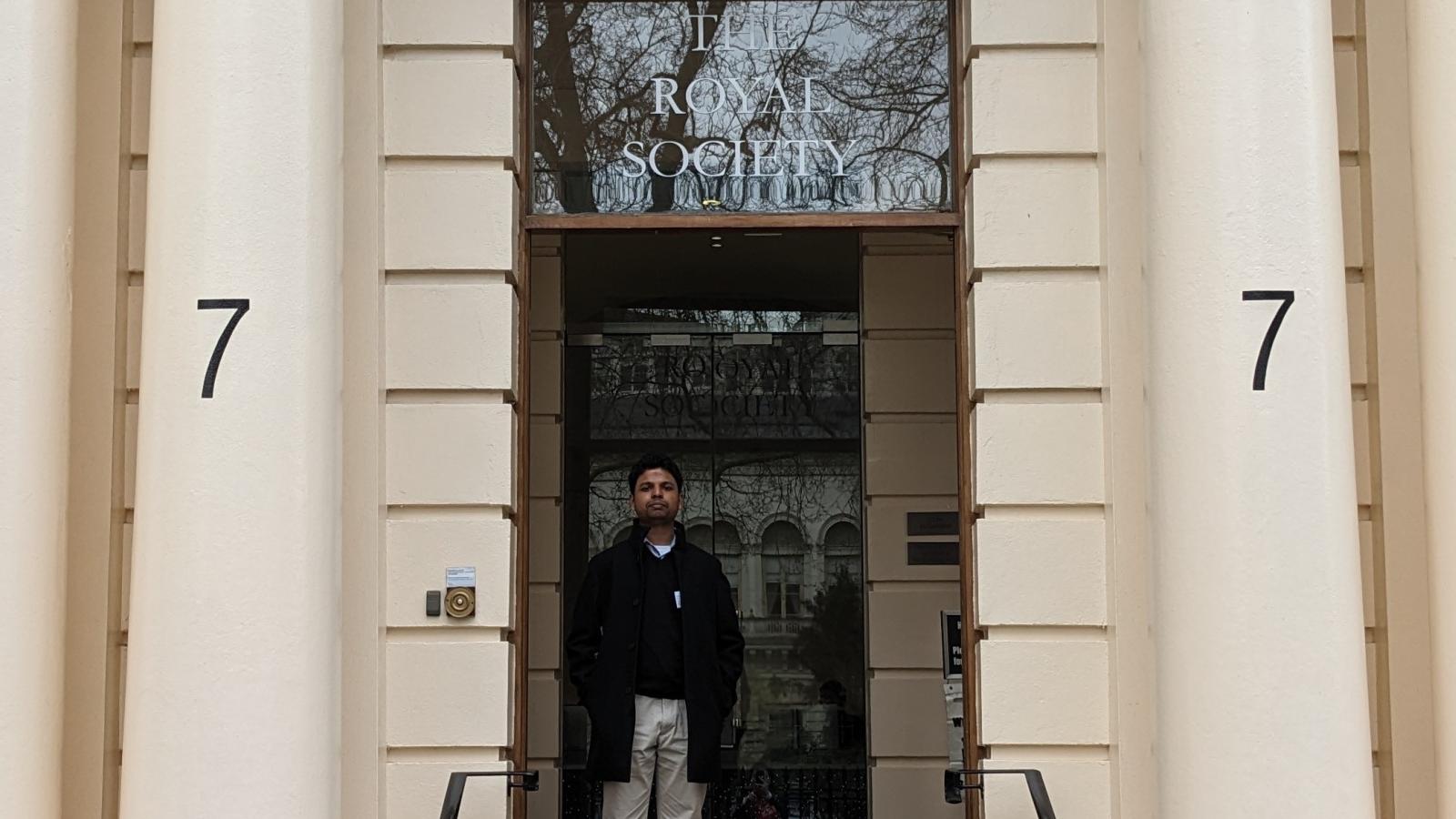Dr Kiran K G Ravindran is a Postdoctoral Research Fellow working with Prof Derk-Jan Dijk at the UK DRI Centre for Care Research & Technology and the Surrey Sleep Research Centre at the University of Surrey. Dr Ravindran was one of 30 scientists who participated in this year’s Royal Society Pairing Scheme, an initiative facilitating collaboration between scientists and policymakers. Here, he shares his experience with the scheme and its impact on his perspective.
As someone whose research involves working with people living with dementia, I understand the nuanced challenges faced by older adults with functional impairments and recognise the impact policy changes can have on the quality of life of individuals. Thus, I was thrilled to learn that my application to the scheme was successful. I was paired with a civil servant who serves as the lead engineer in the Technology team at the Office for Product Safety and Standards (OPSS), within the Department for Business and Trade.
My journey in the scheme started with a memorable experience, attending an introductory dinner in London, where I had the opportunity to join my fellow scientists who came from a wide range of disciplines and career stages. Apart from the interesting conversations, as an early-career researcher, interacting with the senior researchers in the scheme who were leading their independent research provided me with the much-needed clarity for the future direction of my research.
The scheme organisers had curated an exceptional lineup of talks and networking events for the Week in Westminster, introducing us to the policy-making process, how parliaments and governments function, and what researchers can do to contribute. I was astonished by the numerous routes available for researchers to work with the government and contribute their expertise. My top tip: do not hesitate to contact the Royal Society or Go Science if you are interested and look out for calls for evidence on the parliamentary website.
As an engineer, I felt particularly at home during my time with the technology team at the OPSS. After spending some time understanding the complex structure of the OPSS and the various teams, I had the opportunity to meet the technology team and understand the remit of their work. They basically keep an eye on the horizon for new emergent technologies that could compromise consumer safety and challenge existing regulations. I gained a profound appreciation for the sheer amount of work and care that goes into making products safe for us consumers. If you are concerned about the safety of your e-bike or artificially intelligent systems littered across your home, don’t worry, they are already looking into potential vulnerabilities and creating regulations to make the future safe.
In summary, getting a place in the scheme gave me a better perspective on how I can contribute to policymaking and create a positive impact on society. If you are eager to know how you can make a difference, I urge you to apply for the scheme. It is bound to redefine how you approach and communicate your research.
Find out more about the Royal Society Pairing Scheme here.
Article published: 26 April 2024
Banner image: Kiran K G Ravindran
scientists take part in the scheme each year
